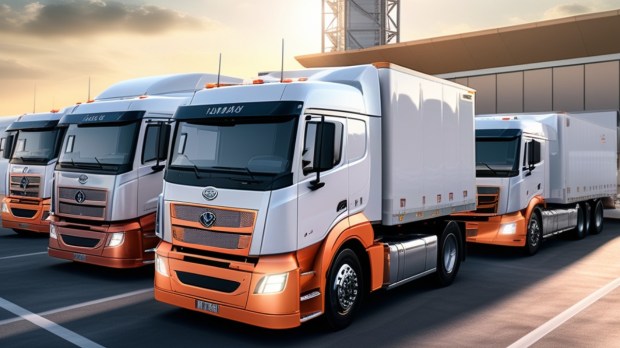It was in September 2023, RPG Group formally announced the launch of its new venture Taabi, a suite of specialised AI and IOT-enabled Software as a Solution (SaaS) firm focused on bringing down the cost of fuel and improving uptime for the logistics space.
Initially planned as a tyre maintenance set-up, the company has worked closely with the fleet operators in the country to understand their pain points and work on a comprehensive suite of solutions that allows them to improve uptime, utilisation and also be more productive.
In her first media interaction, speaking exclusively to Financial Express Online, Pali Tripathi CEO, Taabi shares the story behind the inception.“Taabi originated from the valuable insights gained during our tenure in the ‘Tyre as a Service’ business for Ceat. Recognising the explicit need expressed by fleet operators for solutions that reduce operational costs (particularly in fuel consumption), and enhance vehicle uptime predictability, we conducted a comprehensive 9-month strategic exercise with external consultants. This process validated the diversification opportunities aligning with our mission to make mobility safer and smarter, leading to the creation of Taabi as a solution-driven venture, dedicated to meeting the evolving needs of our customers in the mobility sector.”
She further explained that at present in the Indian logistics space, there are challenges such as over-reliance on road transport (66% of cargo), and high logistics spending (14% of its GDP), which is double the numbers of some of the best-in-class countries. Then there is the challenge of shortage of drivers, which is a critical part of the operations.

“A significant hurdle is the lack of a cohesive, 360-degree approach, with solutions often operating in silos. At Taabi our strategic focus is on optimising efficiency, embracing automation, and fostering integrated solutions to support our customers as a transformative force in the Indian logistics industry.”
Onboarding 20,000 trucks
Being a young company Taabi has initially focussed on serving the unique needs of “medium to large scale businesses, managing fleets ranging from 50 trucks to several thousand trucks”.
The company has also created an extensive network across the country, which is being supported by its regional service centres strategically located in Tier A cities nationwide.

“Since the launch of our inaugural product in May 2023, we’ve experienced remarkable growth, consistently doubling our customer base every two months. Today, we serve customers with a combined fleet exceeding 20,000 trucks, across diverse industries such as e-commerce, mining, steel, construction, auto, and oil and gas,” shared Tripathi.
Interestingly, the company says while it has partnerships with various hardware companies to make the fleets smarter, it is agnostic to the hardware tech. This means, that new-age trucks that already come with advanced telematics solutions can be integrated in its solutions, while old trucks can be retrofitted with a choice of hardware from Taabi partners, or the fleet owner can have their own sensors installed.
Going global and profitability
It is no secret that for any successful business to grow it has to look beyond its immediate geography and Taabi too has the aspiration of expanding to newer segments and geographies.
“Looking ahead, our strategic roadmap includes a dedicated focus on electric vehicles (EV) and last-mile vehicles. In the coming year, we will extend our solutions to also cater to the 20-50 assets segment. We are also poised for international expansion in the next year, with targeted geographies including the Gulf Countries, Africa, Indonesia, Vietnam, and Thailand,” added Tripathi.
While she didn’t reveal the exact quantum of revenues and profitability, Tripathi said, “We have been profitable at a unit economics level, from day one of operations on the back of 100 percent retention and 100x growth month on month. We would like to be profitable at an overall level in the next 3-5 years and be present across the full spectrum of cost-saving and uptime solutions including IC and EV assets in the commercial vehicle and last-mile segments. We will also target to have at least 10-15% of our revenues to be from international operations.”



















